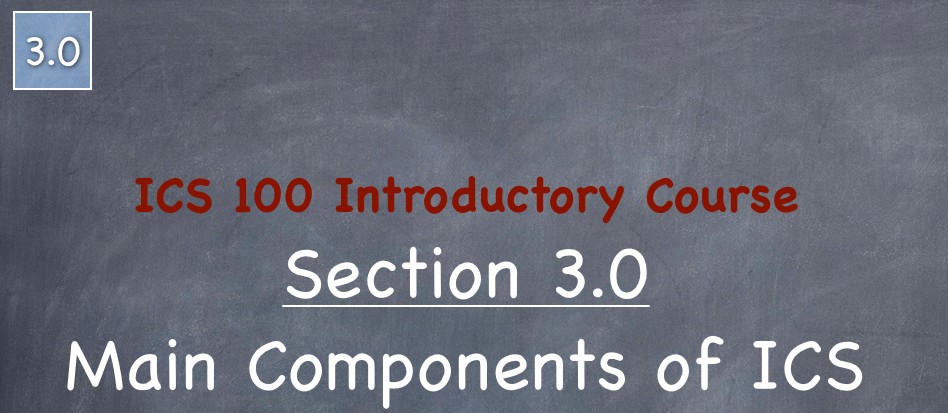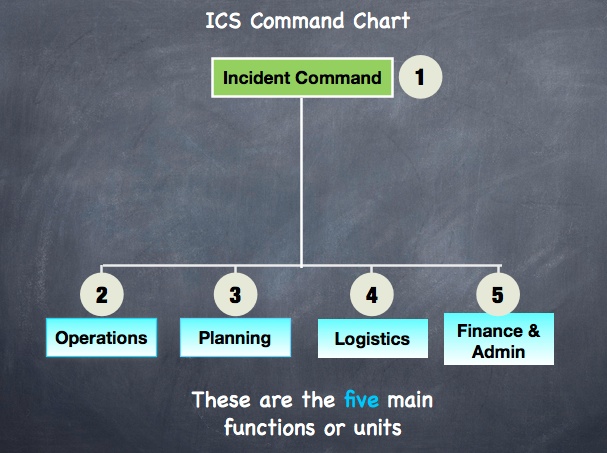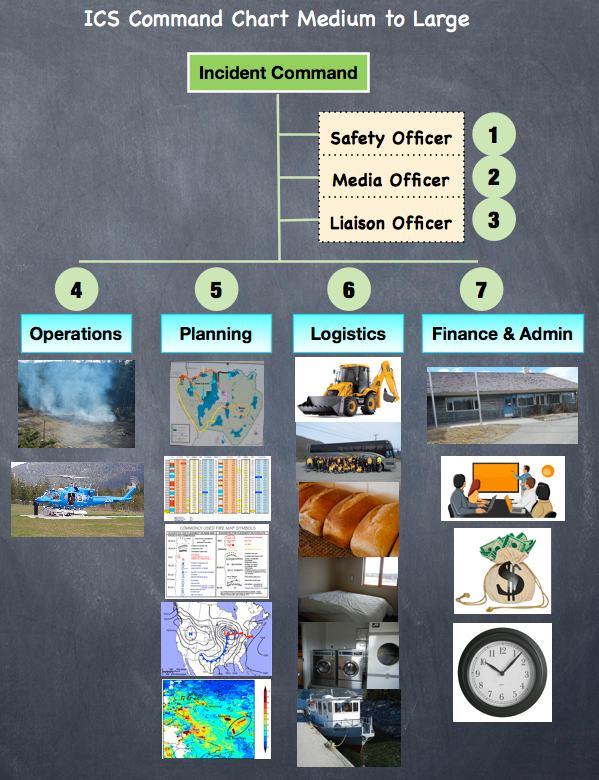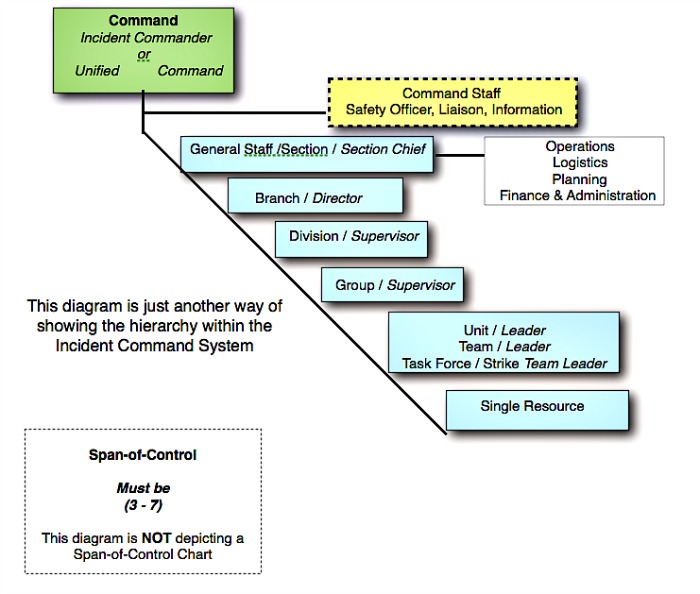DO NOT COPY - ALL contents - Copyright Protected
DRAM Ventures Inc. / www.firesafetraining.com

ICS 100 Introduction Course - Outline
1.0 Course Overview & Objectives
2.0 Introduction to the Incident Command (management) System
3.0 Main Components of ICS
4.0 IC Roles and Command Functions
5.0 General Section Staff Functions
6.0 ICS Facilities and Identification
7.0 Common Responsibilities
8.0 Short Quiz

You may see this and other "blackboard diagrams" often. Consider you have begun your review the second time you see them ...
A Small Incident - Command Chart
Incident Management Team
- five main components.
- Incident Command
- Operations
- Logistics
- Planning
- Finance and Administration (Admin)
DO NOT COPY - ALL contents - Copyright Protected
DRAM Ventures Inc. / www.firesafetraining.com
Incident Management Team - the basics
If it helps you to get a clearer "picture" of this chart, think of the "boxes" as being "functions" or duties. A defined group of tasks that must be done as part of the whole.
... And keep in mind that an Incident Management Team may consist of less than five people because a person may be responsible for more than one “function”. For example, one person could be the I.C., and also fill one or more of the other “functions”. This could apply with a small incident and a small response team. (Maybe three persons in total)
When the Incident Command Team is in place (they assume / take "command" and "control"), the four functions that are subordinate to the Incident Command are referred to as Sections and each section is supervised by a Section Chief.
These four sections are called the "General Staff or Command"
Component #1 - Incident Command
This is the top command function or unit. Every incident MUST have an Incident Commander.
If the incident or event is large and has many values at risk, a UNIFIED COMMAND may be created. A UNIFIED COMMAND may consist of two, three or more representatives from different involved jurisdictions.
Incident Commander (IC)
This is a function of command. Once an Incident Management Team is on the scene of the incident, they declare they are on scene and have taken command. (This "Team" may only consist of two or three persons in the beginning)
The IC is in control and accountable for all activities involved with the incident.
The IC must make all decisions pertaining to the Incident.
Under normal circumstances there is one person as the Incident Commander (I.C.) However, in a more complex incident, it is possible to have what is called a Unified Command.
Unified Command
This is when more than one agency is represented and are all in
command. An example could be a major disaster to a community and
members of the local police, fire, and medical services may all be
in the Incident Commander Function - and they would be located
physically at the Command Centre which is close to the scene of the
incident. (safety considerations being priority)
Component #2 - Operations
This is the active, field operational side of the incident.
Some may describe this unit as the one where the "boots hit the ground"or the "front line" of the operation.
Component #3 - Planning
Looks after and oversees the planning This is mainly “paperwork” activities.
Component #4 - Logistics
Provides for all Support Services
Component #5 - Finance & Administration (Admin)
looks after all aspects of the financial requirements for the incident
Span of Control
You will note above that the Incident Command has only four “boxes” or Sections to be directly responsible for. The IC is overseeing or “controlling” these Sections.
It is therefore stated that there is a “Span of Control”. ... and in the above diagram , the “Span of Control” is four.
The standard Span of Control is three and it can extend to a maximum of seven. Therefore we say the Span of Control within the Incident Command System is three to a maximum of seven.
Five is the preferred Span of Control. (Note the Span of Control in diagram below)
What do you see is the SPAN OF CONTROL below?
(more diagrams of examples are in Section 7.0)


DO NOT COPY - ALL contents - Copyright Protected
DRAM Ventures Inc. / www.firesafetraining.com
DO NOT COPY - ALL contents - Copyright Protected
DRAM Ventures Inc. / www.firesafetraining.com
We wish to acknowledge and thank all organizations and persons for the use of all videos and photos on this web site.
